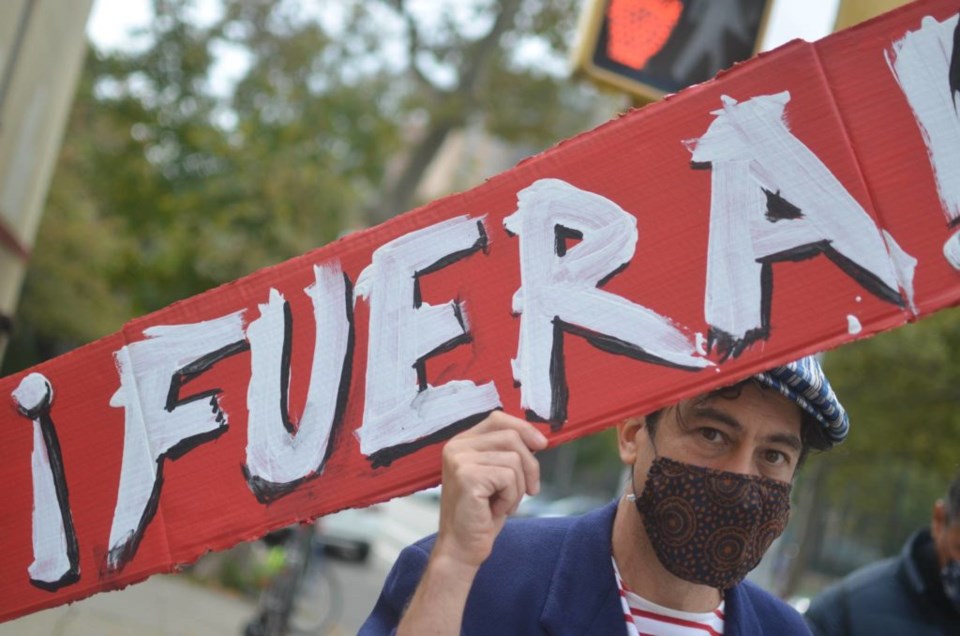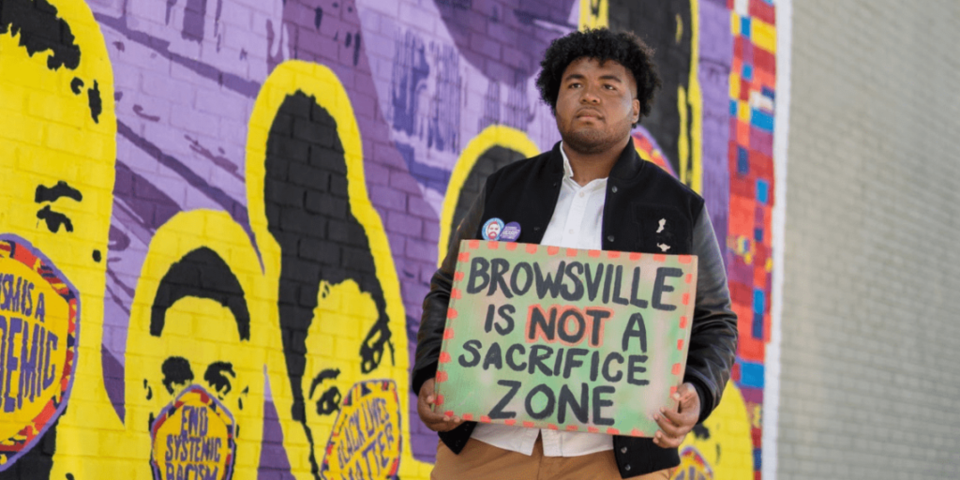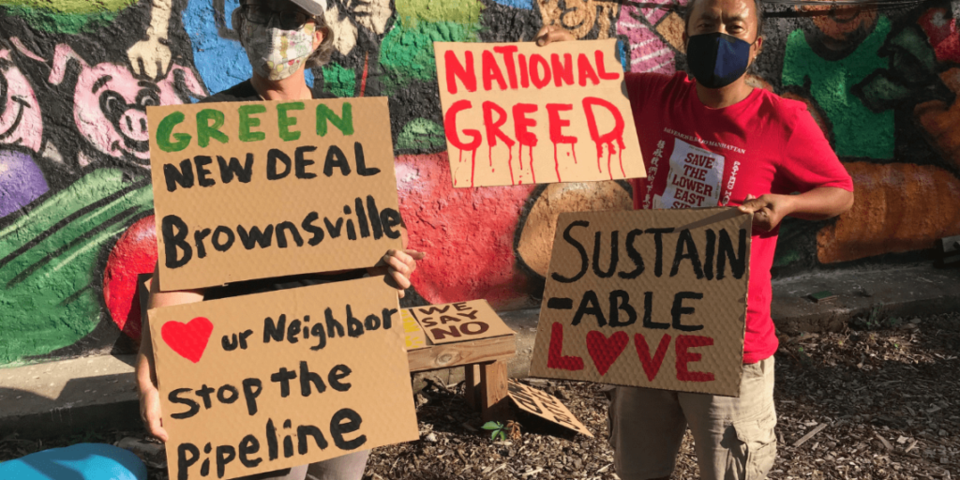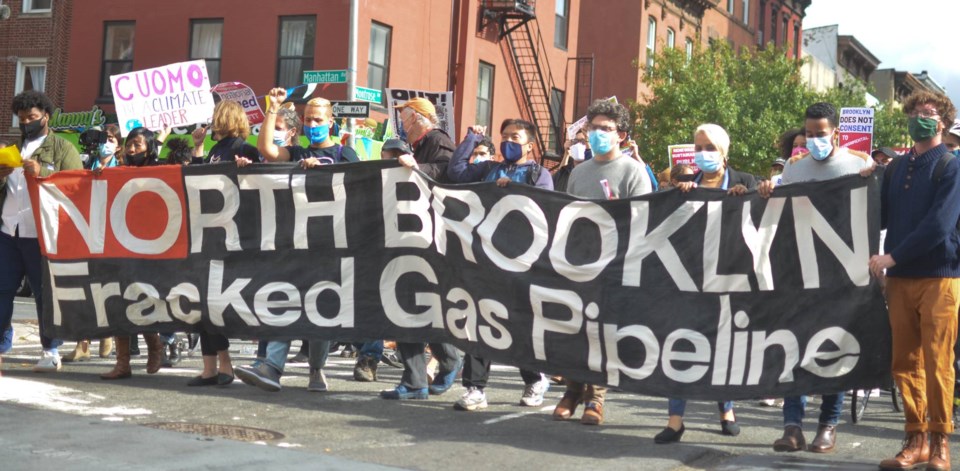The embattled North Brooklyn Pipeline, which would funnel fracked gas under a number of Brooklyn suburbs, faced a major setback Thursday with Mayor Bill de Blasio calling for the project to be halted over climate and racial justice concerns.
The mayor said he was joining activists, residents, and political leaders in opposing the controversial project that he said National Grid had failed to demonstrate was needed.
National Grid started construction on the Metropolitan Natural Gas Reliability Project — also known as the North Brooklyn Pipeline — more than three years ago in May 2017. But residents say they only found out about the project recently, and not from National Grid.
Since finding out about the almost completed project, residents, activists and local politicians have organized a number of protests and rallies to oppose the pipeline, set to carry fracked gas under Brownsville, Bed-Stuy, Bushwick, Williamsburg and Greenpoint.

Opponents say the pipeline is an unnecessary piece of infrastructure built to get the utility more money from ratepayers, and it poses serious environmental and health risks to a number of Brooklyn communities.
De Blasio said Thursday climate change was an existential threat to the city and a quick transition to clean energy had to be made. "We cannot justify the environmental impacts on the largely Black and Brown residents of Brooklyn associated with an unnecessary pipeline expansion," he said.
"Racial and environmental justice go hand-in-hand, and National Grid has failed to clearly demonstrate that this pipeline is needed to keep New Yorkers warm and safe. I am calling on them to withdraw this project immediately."
Gabriel Jamison, of the Brownsville Residents Green Committee, said lower income communities of color had been stripped of resources and exploited for profit for too long, and they needed to be prioritized for investments in sustainable development, green spaces, clean energy and processes that reflected social inclusion and equity for the community.

"We're calling on our elected officials to fight this pipeline with sustainable love through environmental practices," Jamison said.
"Restorative justice includes environmental justice for the Black and Brown communities. Going forward, we must foster bold solutions that would prevent projects like the North Brooklyn Pipeline from ever being constructed in this neighborhood."
Kim Fraczek, director of SANE Energy Project (a non-profit opposing the pipeline) and co-founding member of No NBK Pipeline Coalition, said the mayor's announcement meant there was now unanimous opposition from local city, state, and federal elected officials and tens of thousands of New Yorkers in the affected areas.
"So far National Grid has ignored the will of the people and continued construction, but New York City is united against their plans to lock us in to decades of raising our rates for more fossil fuels, pollution, and climate chaos for their private profit," Fraczek said.

Fraczek said activists would work with the mayor's office to end the expansion of fossil fuel infrastructure, including the LNG facility at the apex of the North Brooklyn Pipeline.
Brooklyn Councilmember and Borough President hopeful Antonio Reynoso said de Blasio's opposition the project was a "great first step" for environmental justice in North Brooklyn, but there was much more work to do.
For the past year, National Grid had been digging up streets to expand its use of fossil fuels, whilst we saw the horrifying extreme weather events caused by climate change play out, he said, adding the time to stop using fossil fuels was now.
"We are no stranger to environmental justice fights in North Brooklyn, however this fight impacted multiple Black and Brown communities across the borough," he said. "The time has come to begin grappling with the environmental racism that impacts marginalized communities to this day."




